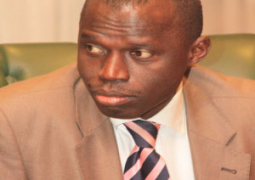We believe it is pertinent to share with our readers the latest news on the climate change issue, one of whose impacts we learned would be on food security, which we have set as a national goal in The Gambia. This is our contribution to awareness creation and public sensitization about climate change.
“Climate Impacts ‘overwhelming’”, said the UN is the headline in the latest BBC News environment correspondent’s report from Yokohama, Japan. Scientists fear a growing impact of global warming on humans, it added.
“The impacts of global warming are likely to be ‘severe, pervasive and irreversible’, a major report by the UN has warned, according to this BBC report, which further stated:
“Scientists and officials meeting in Japan say the document is the most comprehensive assessment to date of the impacts of climate change on the world.
“Some impacts of climate change include a higher risk of flooding and changes to crop yields and water availability.
“Humans may be able to adapt to some of these changes, but only within limits.
“An example of an adaptation strategy would be the construction of sea walls and levees to protect against flooding. Another might be introducing more efficient irrigation for farmers in areas where water is scarce.
“Natural systems are currently bearing the brunt of climatic changes, but a growing impact on humans is feared.
“Members of the UN’s climate panel say it provides overwhelming evidence of the scale of these effects.
“The impacts of global warming are likely to be “severe, pervasive and irreversible”, a major report by the UN has warned.
“Scientists and officials meeting in Japan say the document is the most comprehensive assessment to date of the impacts of climate change on the world.
“Some impacts of climate change include a higher risk of flooding and changes to crop yields and water availability.
“Humans may be able to adapt to some of these changes, but only within limits.
“An example of an adaptation strategy would be the construction of sea walls and levees to protect against flooding. Another might be introducing more efficient irrigation for farmers in areas where water is scarce.
“Natural systems are currently bearing the brunt of climatic changes, but a growing impact on humans is feared.
“Members of the UN’s climate panel say it provides overwhelming evidence of the scale of these effects.
“In the words of the report, ‘increasing magnitudes of warming increase the likelihood of severe, pervasive and irreversible impacts’.
“Nobody on this planet is going to be untouched by the impacts of climate change," IPCC chairman Rajendra Pachauri told journalists at a news conference in Yokohama.
Dr Saleemul Huq, a convening lead author on one of the chapters, commented: ‘Before this we thought we knew this was happening, but now we have overwhelming evidence that it is happening and it is real.
Michel Jarraud, secretary-general of the World Meteorological Organization, said that, previously, people could have damaged the Earth’s climate out of ‘ignorance’.
“‘Now, ignorance is no longer a good excuse,“ he said.
“Mr Jarraud said the report was based on more than 12,000 peer-reviewed scientific studies. He said this document was ‘the most solid evidence you can get in any scientific discipline.“
‘US Secretary of State John Kerry commented: ‘Unless we act dramatically and quickly, science tells us our climate and our way of life are literally in jeopardy. Denial of the science is malpractice.'
"We have to face the reality of climate change. It is arguably the biggest threat we are facing today."
William Hague



